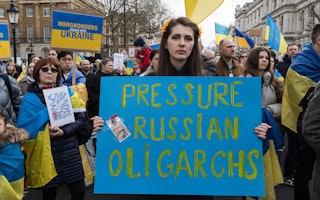Civil society is often seen as a cure for corruption in the post-Communist world. International organizations and experts tend to believe that NGOs have an important role in exposing corruption or that they can even in some ways prevent potential corruption. NGOs can monitor interaction between people in the government and the business sector, alerting the public to misconduct. Also, the transparency of public sector decision-making processes can be increased by lobbying on the part of NGOs.
However, the underlying problem lies in putting an equation mark between “NGOs” and “civil society,” overlooking often deficient institutional frameworks where corruption is allowed to thrive and civil society is constrained.
Download
-
Behind Corruption: From NGOs to the Civil Society (173.44 Kb pdf file)
Download the complete article.
Read more
Navalny’s Legacy
Night Country: The Mysterious Death of Alexei Navalny in Putin’s Russia

Alexei Navalny’s death underscores the paradox of Russian power—that the voice of one man imprisoned and isolated in the Arctic should be such a threat.
Fighting Corruption
A Global Forcefield of Accountability

Magnitsky sanctions and their like have emerged as powerful tools for fighting corruption and upholding human rights. But some fixes are urgently needed to strengthen their ability to hold kleptocrats accountable.
Deadly Corruption
Justice for Victims of the Beirut Blast

It has been two years since an apocalyptic explosion at Beirut’s port killed hundreds and wounded thousands. One lawyer’s quest for justice in a land where it is hard to find.
